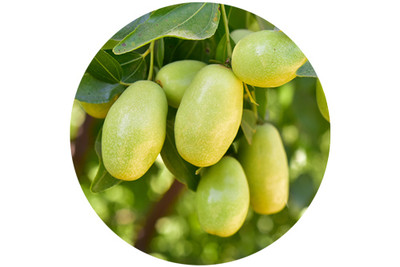Ingredient Spotlight: The Benefits of Jojoba in Skincare
Jun 7th 2024
What is Jojoba Oil?
Jojoba oil is a liquid wax derived from the seeds of the jojoba plant (Simmondsia chinensis). It is widely used in skincare due to its unique similarity to the skin's natural oils, providing a gentle and effective moisturizing solution.
Where Does It Come From?
The jojoba plant is cultivated in the arid regions of North America, particularly in the southwestern United States and northern Mexico. The seeds are harvested and cold-pressed to extract the oil, ensuring the preservation of its natural properties.
Active Compounds:
- Eicosenoic Acid (Omega-9): Mimics the skin’s natural sebum, aiding in the regulation of oil production and promoting skin balance.
- Docosanol: Reinforces the skin's protective barrier, helping to prevent moisture loss and protect against environmental damage.
- Vitamins E & B: Offer potent antioxidant effects, support skin repair, and improve overall skin texture.
- Gadoleic Acid: Another component similar to skin’s natural sebum, contributing to jojoba oil’s non-comedogenic properties.
- Sterols: Help maintain skin elasticity and reduce the appearance of fine lines and wrinkles, contributing to a youthful complexion.
Benefits of Jojoba Oil:
- Balances Oil Production: Jojoba oil closely resembles the skin’s natural oils, helping to regulate sebum levels and maintain a balanced complexion.
- Enhances Moisture Retention: Creates a protective barrier that locks in moisture, keeping the skin hydrated and preventing dryness.
- Provides Antioxidant Protection: Rich in vitamin E, it shields the skin from free radicals and environmental stress, reducing the risk of premature aging.
- Improves Skin Elasticity: The presence of sterols and vitamins helps in maintaining skin firmness and elasticity, reducing signs of aging.
- Gentle and Soothing: Jojoba oil’s mild nature makes it suitable for sensitive skin, providing soothing and calming benefits without causing irritation.
Did You Know?
- Jojoba oil is technically a liquid wax ester, making it exceptionally stable and resistant to oxidation, unlike many other oils.
- Indigenous tribes of North America used jojoba seeds for skincare and hair care, recognizing its natural moisturizing and healing properties.
- Jojoba oil served as a sustainable alternative to whale oil in the cosmetics industry, praised for its similar properties and environmental benefits.
- The jojoba plant is highly drought-resistant and requires minimal water to grow, making it an eco-friendly option for oil production in dry climates.
Jojoba oil’s unique similarity to the skin’s natural oils and its beneficial compounds make it a versatile and effective ingredient in skincare. It offers balanced hydration, antioxidant protection, and improved elasticity, promoting a healthy and radiant complexion.
